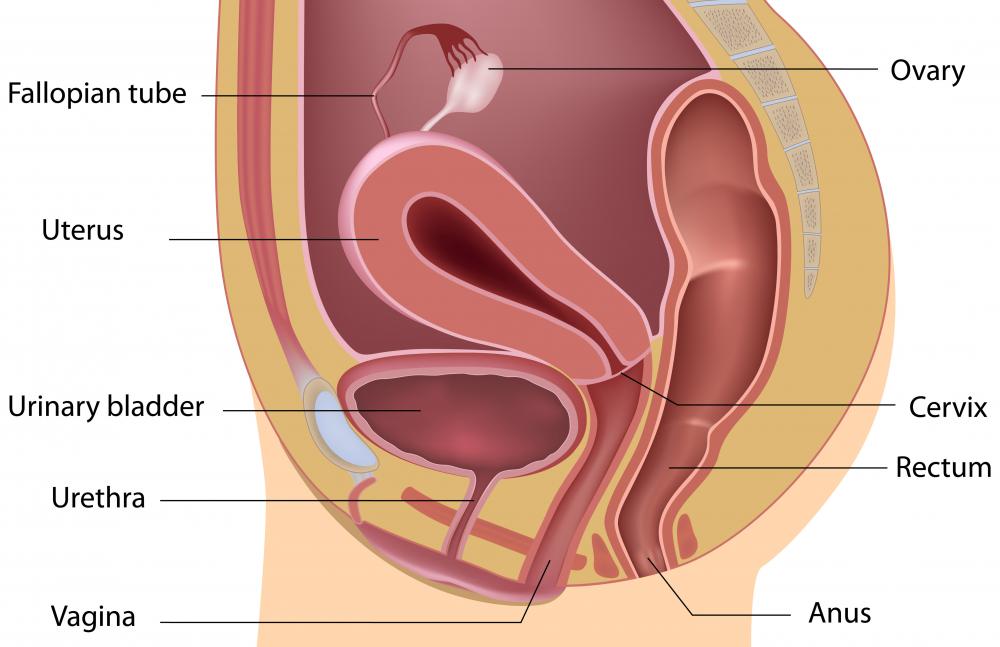At WiseGEEK, we're committed to delivering accurate, trustworthy information. Our expert-authored content is rigorously fact-checked and sourced from credible authorities. Discover how we uphold the highest standards in providing you with reliable knowledge.
What Is Urethral Cancer?
Urethral cancer is cancer of the urethra, which is a tube that removes substances from the body through its connection of the bladder with the genitals. The urethra in males, which is about 8 inches (3.15 cm) long, can be found in the penis, and it transports urine and semen. The urethra in females, which primarily carries urine, protrudes from the vaginal opening and is much shorter, at 1.5 inches (0.6 cm) long. Urethral cancer occurs when cells began to grow uncontrollably in the urethra's tissues.
This particular cancer is split into several forms, depending on the particular location where it develops. For instance, transitional cell carcinoma (TCC), also known as urothelial cell carcinoma (UCC), is named after the transitional epithelium (or urothelium), which is a expandable tissue made up of epithelial cells that lines the urethra's inner surface. Another type of urethral cancer, squamous cell carcinoma, originates in the squamous epithelium (SCC), whose epithelial cells have a scale-like shape. TCC/UCC and SCC are two of the most common forms of urethral cancer. Adenocarcinoma, a form of cancer that originates in glandular tissue, could appear in the epithelium of glands in close proximity to the urethra, typically indicating that the cancer is spreading, or undergoing metastasis.

The risk of developing urethral cancer can increase with advancement of age, particularly in people over the age of 60 with a history of bladder cancer. Other risk factors include sexually transmitted diseases (STDs) and urinary infection, both of which induce chronic urethral inflammation. Urethral cancer occurs more frequently in women than men, and more specifically in white females.

Symptoms of urethral cancer usually involve a host of urinary problems. These can include frequent or weak urination, blood in the urine, or a stop-and-go urine flow. Other signs may include urethral discharge or swelling of the penis. In some cases, however, a person with urethral cancer may not develop any symptoms at all, which could be dangerous if the disease has reached an advanced stage. Physicians use a variety of tests, which include urinalysis, digital rectal and pelvic exams, and cystoscopy, to diagnose the cancer. Additionally, they also rely on x-rays, magnetic resonance imaging (MRI), blood chemistry tests or blood counts to determine the stage of the disease.

Treatment of urethral cancer is split into three types. Surgery, the most common form, can include open excision for removal of the tumors; laser surgery to destroy affected tissue; or cystourethrectomy, removal of the bladder and urethra. Radiation therapy concerns destruction of tumors by using radiation. In some cases, however, the physician will opt to wait to see if the symptoms subside or change.
AS FEATURED ON:
AS FEATURED ON:
















Discuss this Article
Post your comments